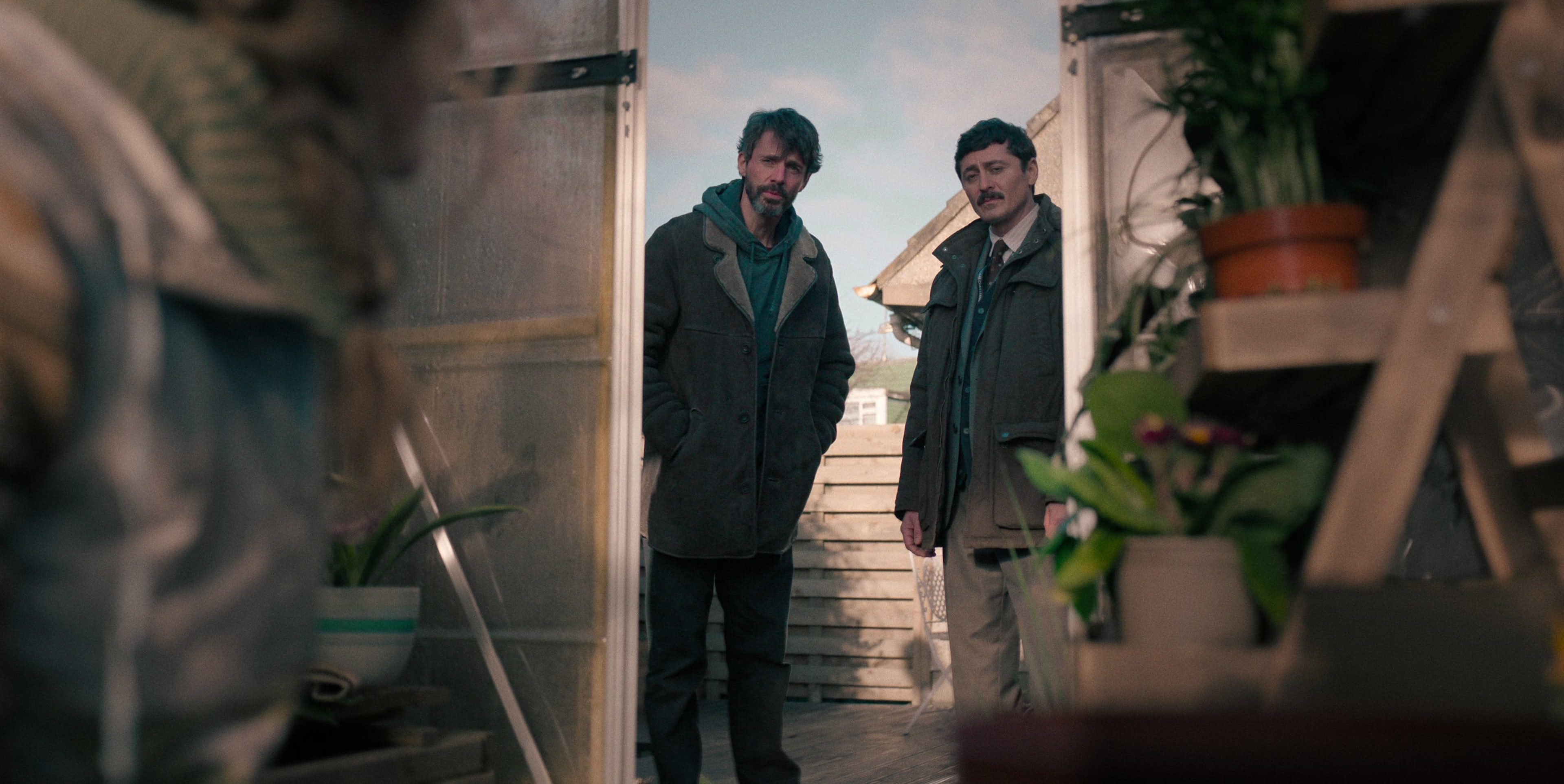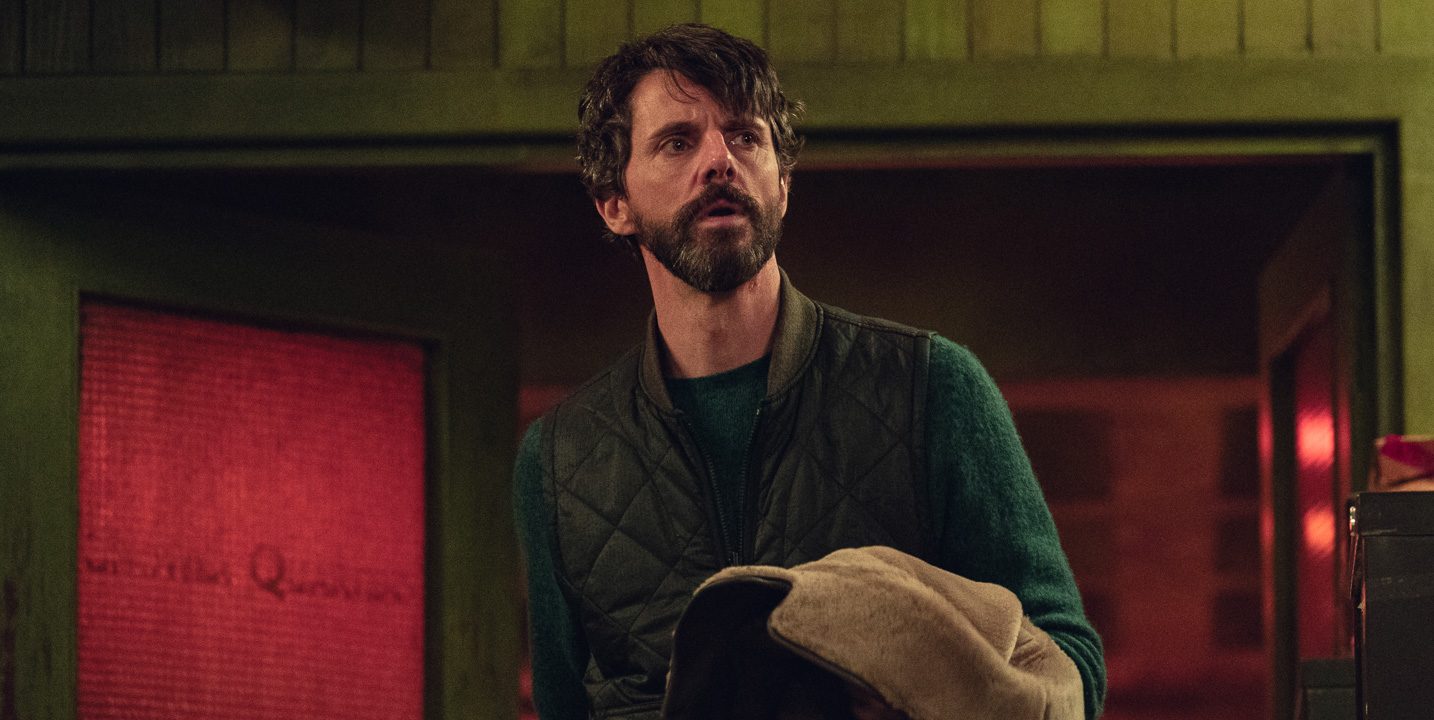The Netflix crime show ‘Dept. Q’ revolves around a surly detective, his band of misfits, and their newly opened cold case investigative department. Carl Morck is an awful company but a brilliant cop. Still, he’s not expecting to be given his own department when he returns to work on the heels of a traumatic attack that left his partner paralyzed and another officer dead. The department, largely a PR stunt, is meant to reopen long-buried cold cases and bring their stalled development to more satisfying conclusions. However, once Carl teams up with his new assistant, Akram Salim, the duo stumbles upon a case that might just stand a chance at being solved.
Thus, the underdog department delves into the missing person case of prosecutor Merritt Lingard, who disappeared four years ago. Helmbed by director/writer Scott Frank, this show transports the audience to the thrilling world of criminal investigation where any new discovery has the potential to unravel years of conspiracy. The narrative is littered with nuanced, flawed characters, of whom Carl Morck stands out as a particularly entertaining protagonist. However, does the detective, his department, and their deserted cases have any basis in reality?
Dept. Q Adapts Jussi Adler-Olsen’s Celebrated Danish Crime Book Series
‘Dept. Q’ is based on the Danish crime noir novels, ‘Department Q,’ written by Jussi Adler-Olsen. The ongoing book series centers around Carl Mørck, one of the best homicide detectives in Copenhagen, Denmark, who is in a never-ending fight against his own demons. At the start of the series, the detective is put in charge of Department Q, a new division dedicated to solving the coldest of cases in the city’s history. In time, his department of one turns into a reliable team, which includes Assad, his trusty assistant with more than what meets the eye. Throughout the literary series, this duo goes on to unearth old cases, excavating sealed secrets of the past. Adler-Olsen’s work has been a cornerstone of the contemporary Nordic crime fiction genre.

In fact, the popular series has already been adapted for the screen as a Danish film series. The first installment, ‘Kvinden i Buret,’ directed by Mikkel Nørgaard, came out in 2013, and various future projects continue to be lined up in the cinematic franchise. However, Scott Frank’s adaptation of the same literary series remains distinct from this series. The American filmmaker has held an interest in Adler-Olsen’s ‘Department Q’ series for a long time. “There was just something about it,” Frank told Netflix in a conversation about the novels. “The title, this notion of something called Department Q, stayed with me.” Consequently, in the early 2010s, he set up a meeting with the Danish author and managed to acquire the US television rights by 2014.
A decade later, Frank was finally able to bring his vision to life. In his adaptation, the setting is changed from Copenhagen to Edinburgh, introducing a distinct Scottish charm to the previously Danish series. The protagonist wears the same name, but undergoes some notable changes, including his English origins, to incorporate an outsider element into his story. A handful of other changes are made to the series, including the transition from Assad to Akram. Nonetheless, the TV show’s foundation remains closely tied to its source material, with the first season sporting notable parallels to ‘The Keeper of Lost Causes,’ the first novel in the series.
Dept. Q Finds Authenticity Through Its Setting
The shift from Copenhagen to Edinburgh presents the most notable difference between Jussi Adler-Olsen’s books and Scott Frank’s show. The latter always knew he wanted to set the show in a new place to add a distinguishing element to his adaptation. Initially, he entertained the idea of setting the story in the States, particularly Boston, Massachusetts. However, he eventually settled on Scotland as the central playing ground for on-screen Carl Morck and his investigative ventures. Thus, the show’s visual and narrative identity began to take shape, surrounded by Scotland’s unique cultural and geographical landscape.

“I hadn’t really seen a show in Edinburgh before, and it’s a beautiful city,” Frank shared when discussing his decision to depart from the source material’s setting in his work. “When I went to go look at the city, I was like, okay, this is amazing. It’s the perfect combination between the modern and the medieval. They’re there side by side and it just works in such a lovely way.” Consequently, the writer/director ended up spending around seven months in the city to get a clear lay of the land. Ultimately, a largely Scottish cast, with the clear exception of the lead British actor, Matthew Goode, and an authentic approach to the locality, ensures that the story retains a sense of realism. Even so, while the on-screen crime-driven storylines strive for realism, the narrative doesn’t take any direct inspiration from any particular instance of real-life crime.
The cases explored within the show, as well as the titular Department Q, remain works of fiction penned by Frank and his team of screenwriters, including Colette Kane, Stephen Greenhorn, and Chandni Lakhani. Still, the idea of a cold case unit isn’t entirely devoid of tangible realism. While there are no police departments solely dedicated to unsolved cases, the Scottish Police Authority does sport a Forensic Services Cold Case Review Team that works toward getting closure for families of victims of unsolved investigations. Similarly, in 2021, the Glasgow Caledonian University also took the initiative to set up a cold case that particularly specializes in unsolved missing person cases. While neither of these instances operates as a direct inspiration for the show, they highlight the latter’s sense of realism.
Scott Frank Wrote Carl Morck’s Character With Matthew Goode in Mind
For the most part, Carl Morck in ‘Dept Q.’ retains prominent connections to his literary counterpart from Jussi Adler-Olsen’s crime thriller book series. Both characters possess similar personality traits as well as backstories, particularly the one that revolves around their guilty conscience for surviving a fatal incident on the job. This plays into their characterization as the familiar Lone detective with a superiority complex trope. Nonetheless, several notable changes were bound to occur in Carl’s characterization in adapting the story from the pages to the screen. The detective’s newfound identity as an English cop in Scotland presents the most evident of these changes.

When Scott Frank was working on the show’s script, he always imagined the protagonist as Matthew Goode, with whom he had previously collaborated on his 2007 directorial debut ‘The Lookout.’ In a conversation about the casting choice, he said, “I’ve been working with him (Matthew Goode) since 2006. Matthew just felt like this guy. I was writing with him in mind. I knew that he could do this and that he would lend this undeniable intelligence with his flintiness, but that he could also be emotional without being sentimental.” This crucial decision informed a vital part of Carl’s characterization as it turned him into a distinctly English detective in a Scottish setting. Consequently, even though Carl Morck’s on-screen character remains reminiscent of his literary predecessor, he also retains his own sense of individuality. Either way, his storylines, both professional and personal, remain firmly cemented in fictionality with no direct real-life inspirations behind them.
Read More: Dept Q Episode 1 and 2 Recap: A Cold Start to a Cold Case


